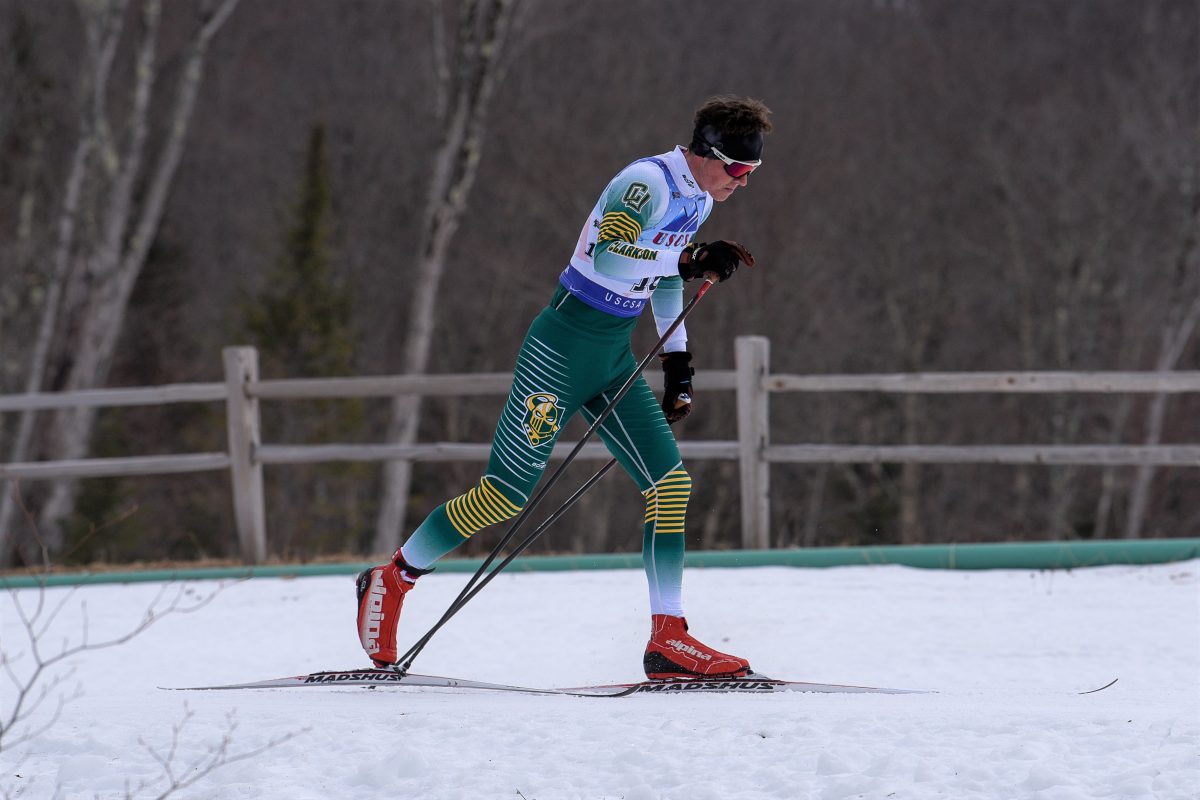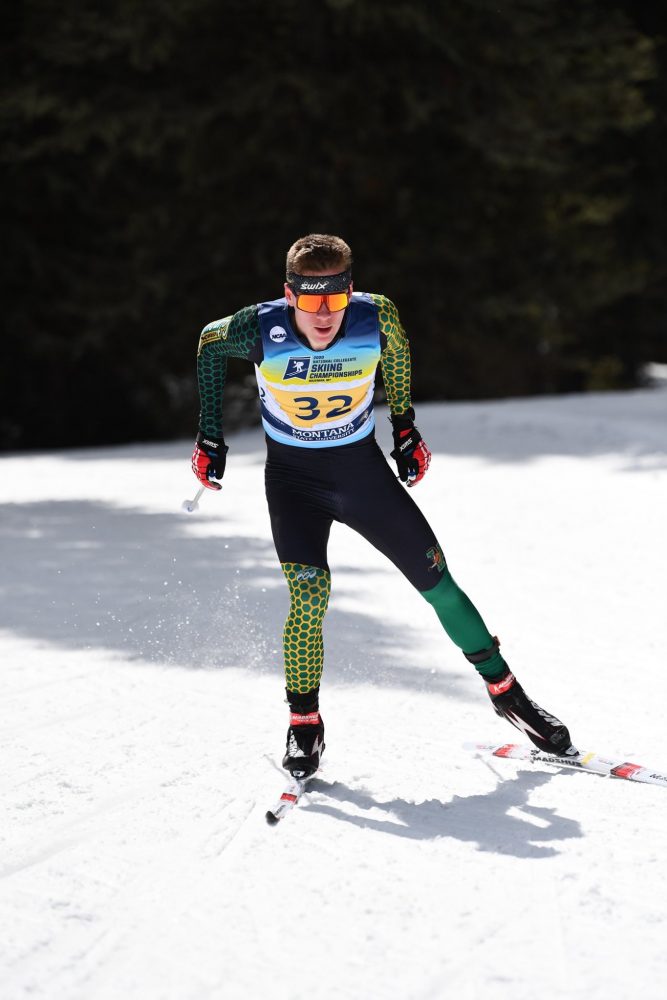
Earlier this month, the Russian Ski Federation made public that current men’s sprint team coach, Yuri Kaminsky, was poised to become the next head coach of the entire Russian National Team. With the Sochi Olympics coming up in 2014, the depth of Russia’s 100-plus athlete program, and the team’s fight to clean up its skiers and its image, much depends on the appointment.
If Kaminsky and the Federation can come to an agreement on the nature of their working relationship at a final meeting in the next few weeks, he is ready to accept the position. Speaking through Alexei Sotskov as a translator, Kaminsky told FasterSkier in a phone interview that he must be able to operate with a certain level of autonomy in the head coaching position, which despite its name is more administrator than coach.
Kaminsky became the front-runner for the job after Mati Alaver’s candidacy became tarnished by his involvement in the Andrus Veerpalu doping scandal. Russian Ski Federation President Elena Vyalbe offered Kaminsky the position while he was in New Zealand with the sprint team at the end of August. After thinking on the offer for two weeks, Kaminsky gave Vyalbe a conditional ‘yes.’
In an interview with Moscow News, Vyalbe laid out what she was looking for in a head coach. The position requires someone who is respected by the team coaches he oversees, can be objective and take responsibility for his decisions, and will to listen to and understand where the athletes are coming from, she said. With Alaver out of the picture, the only legitimate candidates in her mind were Kaminsky and Yuri Charkovsky, who held the position prior to Vancouver.
According to Sotskov, a former Nordic Combined coach for Russia and a longtime friend of Kaminsky’s, the sprint coach was hesitant in accepting the offer.
“At first he was all excited,” said Sotskov, who was at the Snow Farm with Kaminsky and his team in August. “But then he said, ‘In a way, I’m betraying my team. There’s no way I’ll be able to continue working with all these great guys who trust me, and who I’ve been working with for so long.’” If he accepts the promotion, the helm of the sprint team will likely be taken by current assistant coach Mikhail Deviatiarov, Sr., whose son, Mikhail Jr., is on the Russian team.
Kaminsky ascended to the senior sprint team coach in 2008, after building a strong reputation as one of the most successful junior coaches in Russia. According to Sotskov, Kaminsky consulted his team on whether he should accept the promotion, which would remove him from any position of working directly with athletes. The team, too, was split—half were supportive, half wanted him to stay.
“I felt bad for him,” said Sotskov. “He was torn.”
With the pressure to perform well on home turf in 2014 mounting, the decision to take the head coaching job is all the more daunting. The Russian government directly funds the National Team, so expectations for results come all the way from the president of the country, explained Sotskov.
While the head coach feels that pressure more acutely, there is no doubt that it filters down to the individual athletes. In the past, this has perhaps manifested itself in attempts to get ahead with performance enhancers. In the last five years alone, 20 Russian skiers received bans from competition for doping violations.
With Vyalbe’s ascent to President of the Russian Ski Federation in June of 2010, however, the Federation cracked down on doping—after being fined for past violations and strongly encouraged to clean up its act by the International Ski Federation (FIS), eight tainted coaches were banned from working with athletes on the national team. When FasterSkier interviewed Vyalbe in February, she expressed confidence that no skiers under her jurisdiction were cheating.
When asked about his level of faith in the federation’s anti-doping policy, Kaminsky said that coaches and athletes are clear that there will be no mercy if they are caught, and was convinced that the testing policy is in place to catch anyone cheating on the national team.
If Kaminsky accepts the position as head coach, he will be offering guidance to all senior and development teams to ensure that everyone is working towards the same goals, and will be responsible for administrative decisions regarding which athletes get to compete in certain races. Because Russia has such an enormous pool of athletes, Sotskov explained, it’s often very difficult to select teams for specific races.
Beyond regular administrative duties, Kaminsky is waiting until he decides to take the job to start thinking about what initiatives he will tackle first.
Before the end of his interview, Kaminsky took a moment to express part of his inspiration as he moves forward in whatever capacity in the development of Russian skiing.
“I want you to know that I am totally impressed with the American Nordic Combined performance in Vancouver,” he said. “It is motivating me to work harder. I’m puzzled as to how such a small field of athletes could have performed so well. If you can do it with your resources, how on earth can [Russia] not achieve that success with the resources we have? I honestly want to wish the Americans even more luck; they inspire me and my work.”
Regardless of the decision he comes to in the next few weeks, Kaminsky says he is only sure of his continued involvement at the national level through the Olympics in 2014. After Sochi, he said he would reevaluate his relationship with the sport.
Audrey Mangan
Audrey Mangan (@audreymangan) is an Associate Editor at FasterSkier and lives in Colorado. She learned to love skiing at home in Western New York.



